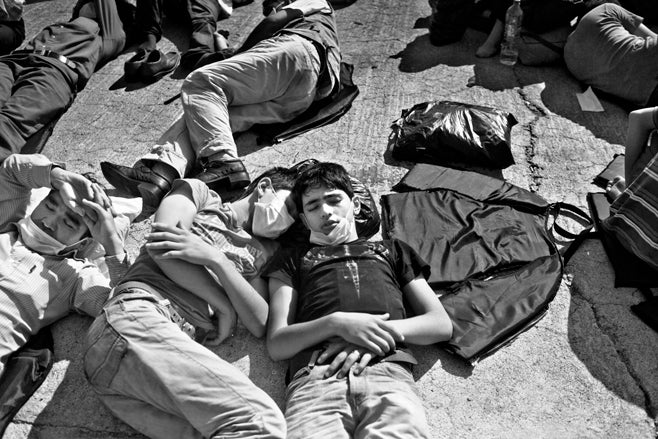It's another case of a huge backlog of asylum seekers persuading the government to make decisions that are not well thought out.
South Africa has a huge number of asylum seekers- UNHCR estimates just under 230,000- most of whom originate from Zimbabwe, supplemented by others from the Great Lakes region and the Horm of Africa. Starting in 2009, (perhaps overwhelmed by the numbers) the South African government took a generous policy towards Zimbabweans fleeing Mugabe's regime. Under a "special dispensation," refugees were entitled to remain in S.A. for 6 months, seek employment, and take advantage of educational and healthcare opportunities while their asylum applications were being processed, all without any form of documentation. (Although the dispensation was designed to assist Zimbabweans, as you might be able to guess, the "no documents" feature enabled a range of different nationalities to take advantage of the law.)
Now the government is back-tracking, concerned that economic migrants are abusing a system designed to protect "real" refugees. The department of Home Affairs has resumed deportations, and in the following weeks they will launch an inquiry to the minimum rights asylum-seekers are entitled to, and likely lift the dispensation for Zimbabweans as well as block rights to education and employment. The result could be thousands of asylum seekers in legal limbo, awaiting the outcome of their asylum application while unable to work or study. These developments, in conjunction with harsh announcements from the government and the closing of two refugee facilities, seems to signal a shift towards a harsher asylum regime in South Africa. As one government spokesman stated:
In the end, the real question for South Africa is: is there a middle ground between all or nothing for Zimbabwe's asylum seekers?
South Africa has a huge number of asylum seekers- UNHCR estimates just under 230,000- most of whom originate from Zimbabwe, supplemented by others from the Great Lakes region and the Horm of Africa. Starting in 2009, (perhaps overwhelmed by the numbers) the South African government took a generous policy towards Zimbabweans fleeing Mugabe's regime. Under a "special dispensation," refugees were entitled to remain in S.A. for 6 months, seek employment, and take advantage of educational and healthcare opportunities while their asylum applications were being processed, all without any form of documentation. (Although the dispensation was designed to assist Zimbabweans, as you might be able to guess, the "no documents" feature enabled a range of different nationalities to take advantage of the law.)
Now the government is back-tracking, concerned that economic migrants are abusing a system designed to protect "real" refugees. The department of Home Affairs has resumed deportations, and in the following weeks they will launch an inquiry to the minimum rights asylum-seekers are entitled to, and likely lift the dispensation for Zimbabweans as well as block rights to education and employment. The result could be thousands of asylum seekers in legal limbo, awaiting the outcome of their asylum application while unable to work or study. These developments, in conjunction with harsh announcements from the government and the closing of two refugee facilities, seems to signal a shift towards a harsher asylum regime in South Africa. As one government spokesman stated:
"South Africans must feel safe. If we're not able to control our illegal immigration, people won't feel safe."It is understandable that providing education and/or employment for thousands of refugees is a costly measure. But the opposite can be ultimately be more expensive: thousands of individuals awaiting the outcome of their claim, turning to begging, crime, or black market employment to make ends meet. Which option do you think is safer for the people of South Africa? And in the event that the move forces massive returns to Zimbabwe as some fear it might, there is the question of whether S.A. is meeting its treaty obligations, particularly as pertains to non-refoulement.
In the end, the real question for South Africa is: is there a middle ground between all or nothing for Zimbabwe's asylum seekers?




